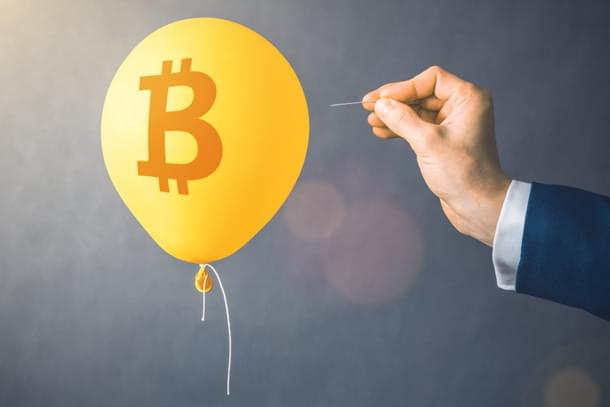Economy
How Crypto's Dream Run Came To An End, And Why It May Never Be Like Old Times Again
Tushar Gupta
May 24, 2021, 02:45 PM | Updated 02:45 PM IST
Save & read from anywhere!
Bookmark stories for easy access on any device or the Swarajya app.


On the morning of 10 May 2021, you could use a single bitcoin to purchase a car, assuming that car was priced exactly as the value of a single bitcoin, then trading at the $59,356.78. Two days later, you would have been able to purchase 97.2 per cent of the car using bitcoin. By 13 May, only 84 per cent. By 16 May, further down, 82 per cent.
By 17 May, only 71 per cent of the car could be purchased with the same bitcoin. Nine days later, on 19 May, 58 per cent of the car could be bought from a single bitcoin.
On the night of 23 May, it would have taken almost 2 bitcoins to purchase the car that could be bought for one just a fortnight.
Inflation or hyperinflation or a mad gamble?
The last week has not been great for cryptocurrencies, especially bitcoin.
Musk’s Kejriwal-like u-turn on allowing payments through bitcoin hit the Titanic of the cryptocurrency market like an iceberg. Citing the environmental costs of mining bitcoin, elaborated here, Musk chickened out, leaving the Bitcoin bulls disappointed and pondering over the influence some bigshots may exercise in this unregulated market.
In January 2020, he tweeted that Bitcoin was not his ‘safe’ word. By December 2020, it had become his ‘safe’ word. However, in the same month, he equated Bitcoin to fiat money, tweeting how both were simply garbage, in a manner not that polite, however.
By February 2021, Tesla justified the idea of investing in cryptocurrency, stating that fiat currency offered a negative real interest rate. However, the same tweet had a disclaimer where Musk declared he was an engineer and not an investor.
On 24 March, just three months after calling Bitcoin pointless, Musk announced that Tesla was now accepting payments. Less than two months later, he tweeted that Tesla was no longer accepting payments via bitcoins.
When a Bitcoin nosedive followed the announcement, Musk took to Twitter again to declare that the company had not sold any Bitcoins. Now, in which trading universe would any company, publicly, comment on an investment in this manner while retaining its holdings.
One of his recent tweets on Bitcoin highlighted the problem of energy consumption, stating that economies of scale would be imperative for small miners, again emphasising the problem of a supermajority in this largely unregulated market.
Musk, successfully, on Twitter, has not only exposed the problem of volatility in this cryptocurrency market, but also that of the supermajority which can further add to the volatility.
Given Musk is not the only supermajority in this market, the investors now not only have to battle with the threat of government regulations and unpredictable bans but also worry about the mood swings of big investors like Musk.
Adding to this madness was the announcement from Beijing banning banks and payment firms from offering services for cryptocurrency transactions. The digital currency rollout in China was also making news, further dampening the prospects for cryptocurrency in a country where a billion people daily conduct digital transactions.
Last week, Jay Powell, governor for the Federal Reserve, stated that the Fed was actively considering their own version of the digital currency, adding to the fall. Powell also commented on the increasing volatility in the cryptocurrency market.
The digital currency rollout across China, the United States, and other big markets across the world including India, the United Kingdom, and Japan, would directly threaten the existence of the cryptocurrency market.
Given the CBDC (Central Bank Digital Currencies) would allow governments to track financial transactions better than today, the existence of an unregulated crypto market would contradict the existence of the former altogether. In a world where governments, banks, markets, and citizens choose to adopt digital currencies, where would the sense be in allowing a decentralised crypto market, open to money laundering and illegal transfers?
By banning crypto services, China has hinted at the future. If you are going long on digital currencies, feel free to short the crypto market. An unregulated crypto realm cannot coexist with a banking system with digital currencies.
Thanks to the erratic mood swings of Musk and the growth prospects of digital currencies, the music in the crypto market is beginning to slow down, if not stop altogether.
As it stands today, crypto is a currency for fools, an asset for gamblers, and a potential clientele marketplace for cardiologists.
Short! Short! Short!
Also read:
Why Cryptocurrencies Cannot Replace Dollar Or Gold, Ever
How Tesla’s Exit Has Given A New Twist To The Bitcoin-Environment Debate
Tushar is a senior-sub-editor at Swarajya. He tweets at @Tushar15_





